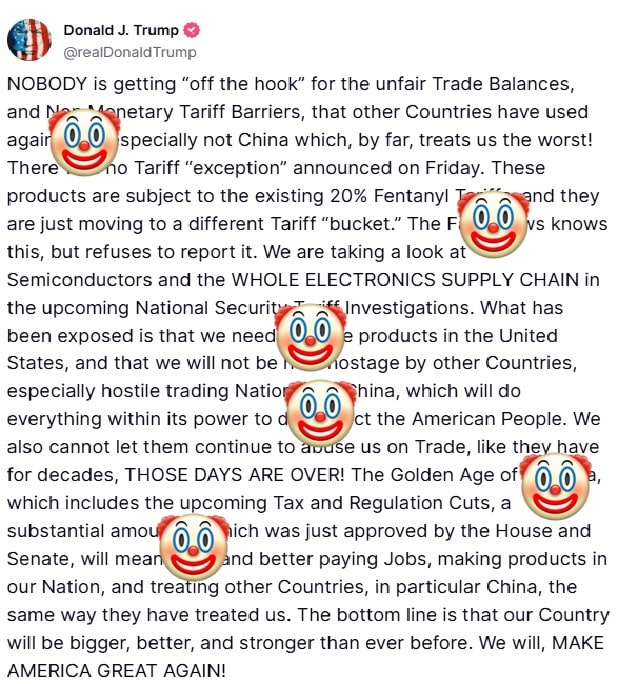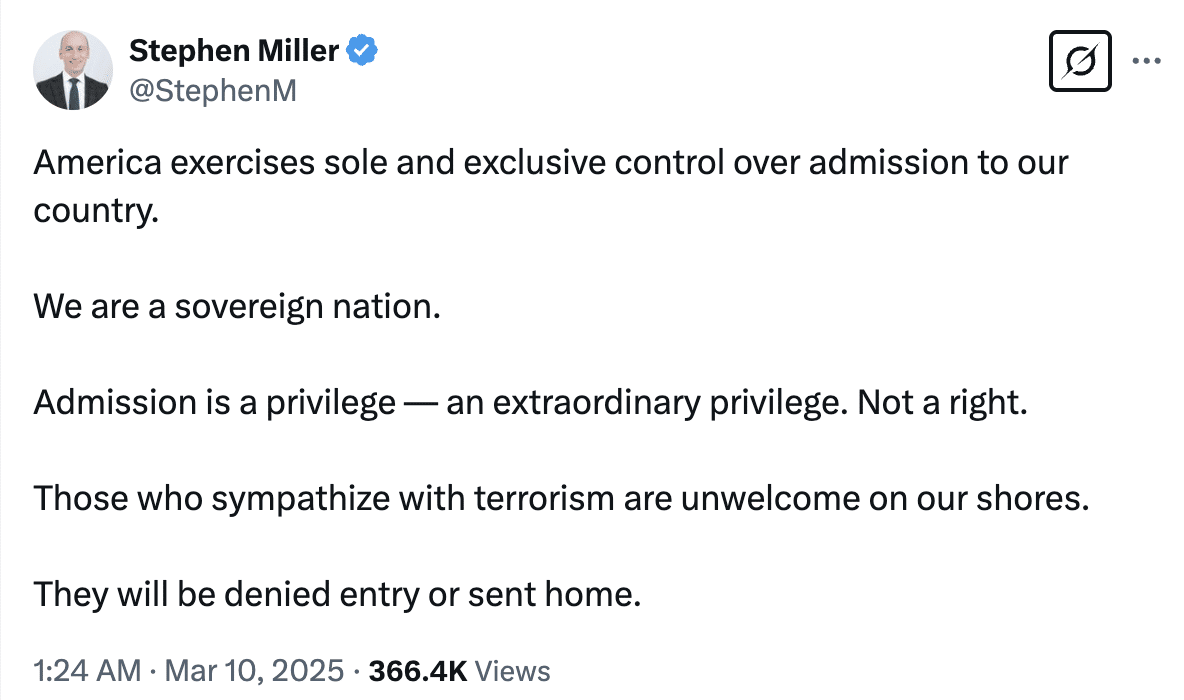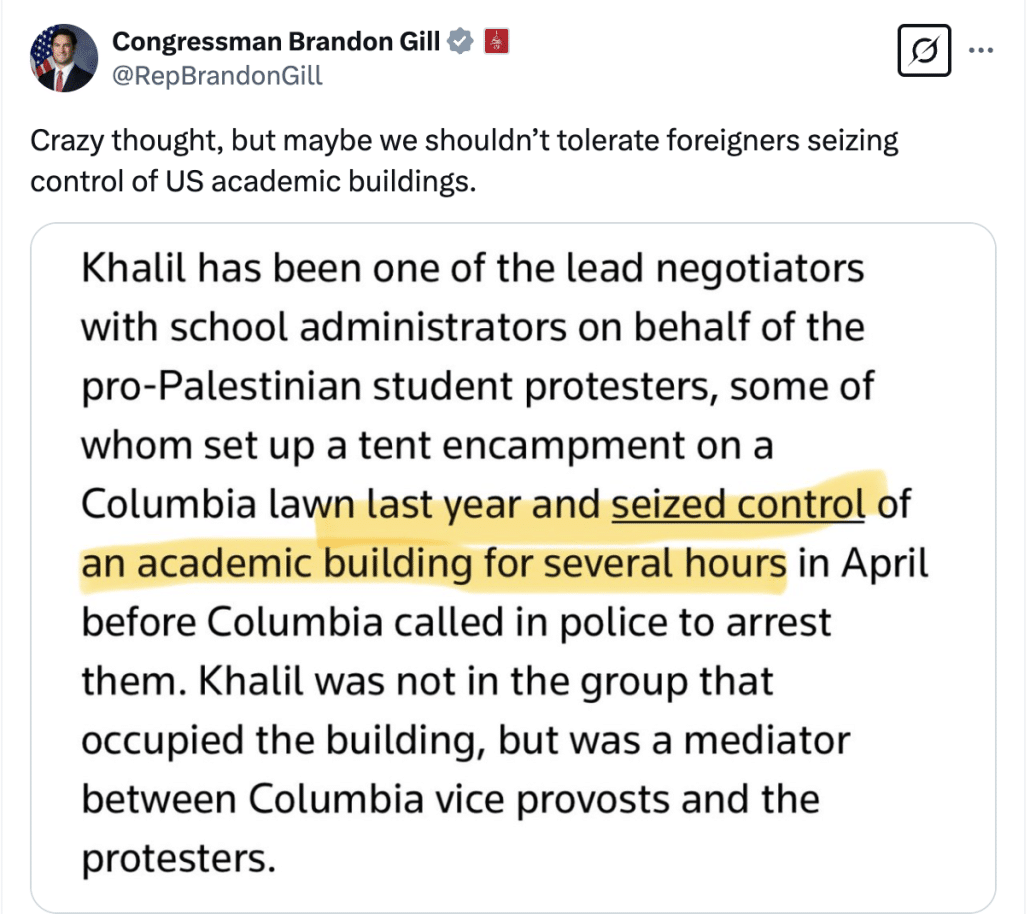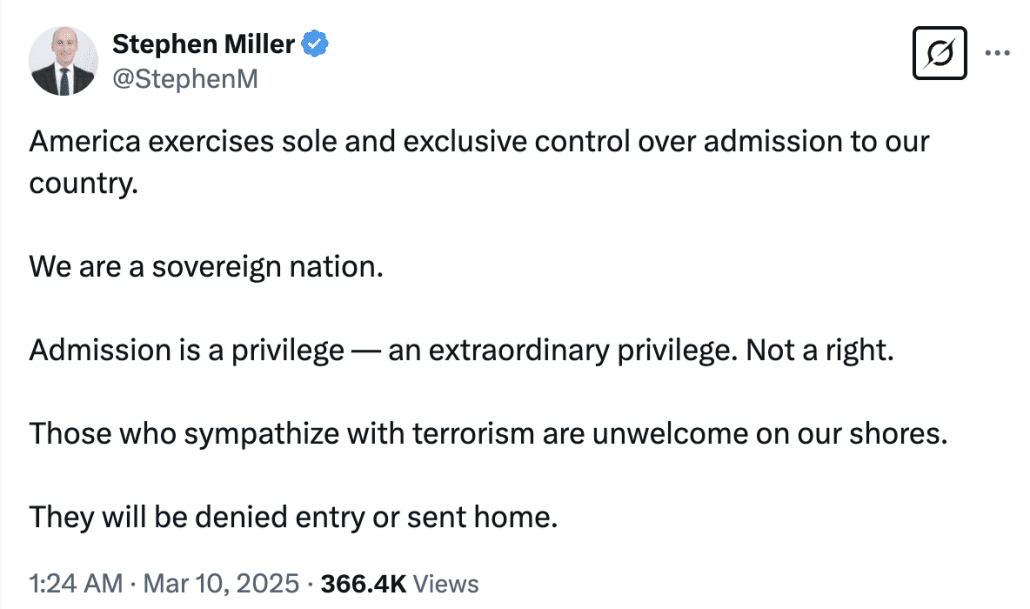Things Go Boom When You Attempt to Retcon the Economy
I keep writing about how Trump keeps retconning what he is doing legally, attempting to alter his explanations for what he’s doing, legally, when a first legal theory runs into trouble. The Trump administration has tried to retcon:
- The basis by which they smothered USAID
- The legal basis for revoking Mahmoud Khalil’s
student visagreen card - Their opinion about the Eric Adams prosecution team
- Who leads DOGE and what her real day job is and Elon Musk’s role in it all
Trump has only accelerated these dizzying gyrations in attempting to explain how Kilmar Abrego Garcia ended up in a prison in El Salvador.
- We’re just lending Nayib Bukele detainees
- We fucked up
- We’ll comply with SCOTUS’ order
- Nope, Abrego Garcia is Bukele’s for keeps
- We fucked up but we’re declaring backsies on a 2019 decision
- It’s classified
Thus far, Trump has dodged repercussions for this Choose Your Own Adventure lawyering, thanks in part to SCOTUS’ disruption of the Alien Enemies Act class act before Judge James Boasberg before he could hold anyone in contempt. There is a pending contempt request before Judge Paula Xinis in the Abrego Garcia case, but she will need to dot some Is and cross some Ts before she imposes sanctions and even there it would take time to target the sanctions against the people who deserve them.
I first IDed this Administrative retconning in the legal context because in the legal context there are rules about saying one thing and then changing your mind (though actually, I first IDed Trump’s reliance on retconning after the Haitian dogs and cats attack during the election). That is, it matters in a legal context because it may blow a legal case even in a context — such as deportations — where the President has expansive authority. The Supreme Court vastly expanded Trump’s power with the immunity decision, but his DOJ is so feckless it may end up losing anyway because they do something stupid (or at least wildly inconsistent) legally.
That’ll take time, though. Xinis will not rule quickly to avoid giving the government easy cause for reversal, and so won’t deliver the immediate punishment the government deserves.
But Trump has been retconning policies elsewhere, most especially in his rollout of tariffs.
Over the course of the last week, Trump rolled out:
- Liberation day tariffs on everyone, including penguins, except the axis of authoritarians Trump idolizes
- A blink
- Tariffs on China
- More tariffs on China
- Still more tariffs on China
- Even more tariffs on China
- The Tim Apple exemption
- A seeming reversal of the Tim Apple exemption
This is the very same policy ineptitude as we see with DOGE and in the legal context, but this time with the world’s biggest economy, and just as importantly, the glue that holds the global economy together.
In the legal context, this fecklessness — and the public retaliation on government lawyers for admitting that they’re being compartmented from real information — results in the gradual erosion of presumption of regularity, the equivalent of a house advantage that lets the government make seemingly unreasonable claims without immediate consequence.
But the presumption of regularity dissolves much more quickly in the financial context.
Justin Wolfers, who doesn’t have a substack but does have TikTok, described how Trump’s attempts to retcon his tariff policy has created two economic crises: the first created by Trump’s tariffs themselves, the second created by the retconning itself.
One of the reasons you saw the markets respond so strongly is there this crisis of confidence. It’s a crisis of confidence in the competence of the Administration. They’ve rolled out tariffs based on formula that make no economic sense. They stick with a plan where they say it’s all about one thing and then they roll it all back and say, you know what? we’ve been lying to you since Sunday when they already decided to change paths. They — tariffs on China yesterday, we were told, were 125% and today they’re 145%. I want you to stick with that for just a moment. You’ve got tariffs between two of the world’s great economic powers and people in the White House couldn’t tell you the correct tariff within 20 percentage points, which would normally be the entire trade war and they forgot whether it was 125 or whether it was 145.
In his substack, Paul Krugman likens the response to the treatment of the US economy like a developing economy.
The obvious explanation is that crazy policies have shaken investors’ faith in America, which has traditionally been viewed as a safe haven.
The topic of how Trump’s policies have messed with the bond markets – including the market for US Treasuries — is too difficult for me to cover today, but here’s more. The key point is that massive tariffs have disrupted the plumbing of the financial system, leading to soaring interest rates on U.S. government debt. That’s abnormal: rising odds of a recession usually lead to falling long-term interest rates, because the prospect of a recession raises the likelihood of future cuts by the Fed, which controls short-term rates. This time, however, rates are spiking, especially for very-long-term instruments like 30-year bonds, shown at the top of this post.
The common thread in currency and bond markets is that, thanks to Trump, dollar assets — traditionally the foundation of the global financial system — are no longer perceived as safe.
The combination of interest rates soaring amid a slump and the currency plunging despite rising interest rates isn’t what we normally expect for advanced countries, let alone the owner of the world’s leading reserve currency. It is, however, what we often see in emerging-market economies. That is, investors have started treating the United States like a third-world economy.
Did I see this coming? No, not really. Unlike the sanewashers, I knew that Trump’s policies would be irresponsible and destructive. However, even I didn’t expect him to destroy credibility accumulated over 80 years in less than three months. But he has.
And even if Trump were to backtrack on everything he’s done, we wouldn’t get the lost credibility back. The whole world, sanewashers aside, now knows that America is run by a mad king, surrounded by enablers, who can’t be trusted to behave rationally.
In court, Trump may have ways of dodging the consequences of getting caught retconning his story.
In the economy, there’s no way to unring the bell — probably not even the replacement of Trump, if that were to happen in the near term.
American financial hegemony has been built on a decades of reliability. That financial hegemony has given the US, and even US consumers, privileges other people don’t have. Importantly, that financial hegemony is the basis for tools — such as sanctions on Russia on Iran — that Trump claims to be threatening if he doesn’t get his way.
Things go boom when you try to retcon your economic explanations.
I alluded to this on Friday’s podcast with Nicole. It was inevitable that bankers and hedgies would have less patience with Trump’s equivocations than judges do, partly because of judicial comity and partly because SCOTUS will go some lengths to protect Trump.
But these are related issues. The utter fecklessness of Trump’s policy logic is consistent between law and the economy (indeed, DOGE occupies the sweet spot between the two of them). That doesn’t mean the bankers will care about all the other damage Elon Musk has been doing to the US. But it means Trump’s claim to omnipotence will start to unravel in ways that may provide opportunities elsewhere, including with Republicans who actually understand the privilege that arises from the US economic hegemony Trump is squandering.






